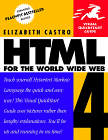|
Handheld
Handhelds
are powerful electronic replacements for traditional date books and
organizers. They help take notes, organize schedules and can interface
with desktop computers. More and more, handheld computer technology is
merging with mobile telecommunications technology to produce some very
remarkable products.
Palm
OS is the most popular operating system for handheld computers and is
the OS that first made handheld computing useful and popular. There are
many applications, utilities and games available for Palm OS powered
handhelds such as the Palm V Connected Organizer from Palm Computing.
EPOC
is an interesting new Operating System from Symbian used in handheld
computers from Psion and in mobile phones from Ericsson, Motorola,
Phillips and Nokia. EPOC is a 32 bit, object oriented, multitasking OS.
Good things do come in small packages.
Personal/Desktop
Personal
or Desktop operating systems provide easy to use graphical interfaces, a
large selection of personal and office productivity applications and
games.
Macintosh
revolutionized ease of use and introduced the graphical user interface to
personal computing. Despite imitators, Macintosh remains the easiest to
use desktop operating systems. It is popular in publishing, multimedia and
education. With the introduction of the iMac, Macintosh made a major step
towards recapturing the home market and the imagination of computer users.
With Mac OS X, Apple is making a strong move forward in stability and
scalability.
BeOS
is the only true innovation in desktop operating systems to be introduced
and delivered in the past several years. BeOS is a pervasively
multithreaded, object oriented, media optimized operating system designed
to meet the needs of tomorrow. Although still young, it has inspired the
creation of many innovative products and add-Ons. Its only true
shortcoming is its youth - and consequent lack of hardware support and
applications. Nevertheless, we like it!
OS/2
was meant to be so much - it was originally a cooperative venture between
Microsoft and IBM as the official successor to Windows 3.x. Microsoft
dropped out of the venture and IBM never pushed OS/2. The result is that
this excellent desktop operating system has been left twisting in the
wind. OS/2 has a good GUI, excellent multitasking and solid network
support. The OS/2 Warp server edition offers server capabilities that
almost rival UNIX. |
UNIX
UNIX
is a reliable and scalable operating system used primarily for server and
scientific applications.
Linux
legitimized the open source development model and, with many friends in
the media, is the most widely promoted alternative operating system. Linux
is a fast and stable flavor of UNIX available for Intel PC's and many
other platforms ranging from handheld computers to powerful RISC based
workstations and servers. Linux is already a powerful server operating
system. With the continued progress of the Gnome and KDE projects, it is
very close to becoming a powerful and easy to use desktop operating system
as well. It's not yet for everyone, and work remains to be done. Linux
development moves at a remarkable pace - it should be a fun ride.
BSD is
one of the two original flavors of UNIX. It began as a project of the
University of California, Berkeley. The Internet network protocols were
first developed in BSD UNIX. BSD is still favored for many Internet
applications and has a healthy following amongst Internet Service
Providers. There are many variations of BSD UNIX including several free
implementations.
Solaris
is the leading commercial UNIX. It offers reliability and scalability not
found in the free versions of UNIX such as Linux or BSD. There are more
server applications available for Solaris than for any other UNIX.
Others
IndexOS
contains listings for an ever growing number of Operating Systems.
Mainframe
- 'Big Iron' still can't be beat for sheer reliability and transaction
processing capability.
Midrange
computers act as departmental or small company servers, a niche often also
filled by UNIX based systems. The midrange operating systems compete by
offering reliability, transaction processing and compatibility with legacy
code.
Real
Time and Embedded operating systems are used by almost everbody each
and every day, but few people ever realize that they exist. Well they do,
and IndexOS contains an extensive directory of Real Time and Embedded
operating system resources. |
![]() Congratulations to all users who were awarded free
t-shirts. Thank you for using IndexOS.
Congratulations to all users who were awarded free
t-shirts. Thank you for using IndexOS.


![[Linux Mall, The Linux SuperStore]](/file/23400/Chip_2001-06_cd1.bin/internet/ukazky/ind_soubory/mallrfr8.gif)
